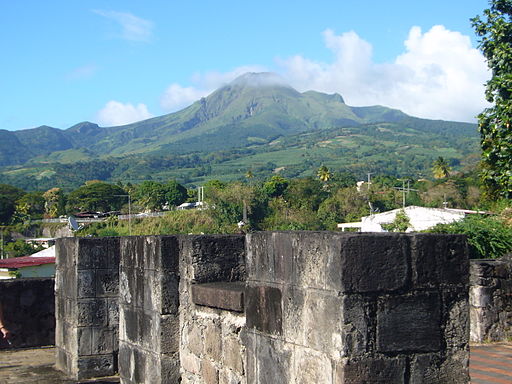"Proud to be a Woman:" Meet Caribbean Poet Suzanne Dracius
Posted on October 09, 2022

In a video interview with WWB, Suzanne Dracius explains that her poem "Women's Fantasies" came out of some frustration with traditional depictions of women's identities and experiences of love:
“I’m not ashamed of being a woman. On the contrary, I’m proud to be a woman and to own all of these desires that are within me and to be able to express them.”
The result is a poem that flirts with its subject as Shakespeare's Cleopatra might have flirted with Antony – from a position of strength:
Now it is I inviting you
in melody,
in harmony.
The poem's speaker is also Cleopatra-like in her changeability: each new stanza brings new moods, from boldness to tongue-in-cheek self-reproach, and the speaker herself seems to swap identities. At the beginning, she fantasizes about riding on a horse's back; by the end, she has perhaps become the horse, "a chestnut brown Caribbean gourmet" that gallops away from the reader. References span African history, ancient Greece and Rome, and contemporary Martinique.
In the same interview cited above, Dracius explains that the poem's plural title "Women's Fantasies" (“Fantasmes des femmes)” is intentionally ambiguous. It can refer to many women and their fantasies, or it can refer to one woman and the many different forms that she can assume, the different fantasies she may imagine.
Context for "Women's Fantasies"
Meet the Author and Translator
Find out what inspired the poem "Women's Fantasies," and how Suzanne Dracius defines "féminitude" in a far-ranging conversation with translator Nancy Naomi Carlson and MFA student Soni Brown.
Definitions
"Women's Fantasies" includes references ranging from ancient Greece to contemporary Martinique; get a sense of the meanings with the definitions below.
| Name or expression | Definition |
|---|---|
| Andromache | An Amazonian queen in Greek mythology. The names means something like "fighter of men." |
| Dahomey | A formerly prosperous West African kingdom located within the borders of present-day Benin. |
| Penthesilea | Another Amazonian queen in Greek mythology. |
| Saint-Pierre | The former capital of Martinique, completely destroyed by the eruption of Mount Peleé in 1902. |
| Mount Pelée | An active volcano in the northern part of Martinique. |
| Yé mistikri! | Créole expression of enthusiasm, used for audience response. |

Teaching "Women's Fantasies"
The poem is probably best suited to students in eighth grade and above, as it includes some sexually suggestive, though veiled, language. The first four stanzas are in the form of an apostrophe, a poem addressed to a person, object, or idea, but the final stanza changes into a narrative lyric.After an initial group reading, you might assign each of the poem's five stanzas to a different small group to closely read and present, perhaps using the "jigsaw" model. During this time, have students record any questions about the meanings of lines on a shared document, poster paper, or board.
Then, have students discuss the questions they generated, along with a few others below, in the context of making inferences from texts.
To whom is the poet speaking? How can you tell? Use phrases from within the poem, such as "all these things you say," to draw inferences.
What are the possible meanings of the line about, "lovely servitude, now banned" / d’exquise servitude abolie. What emotional responses does this line provoke in readers?
Finally, if your class includes French speakers or learners, you might have them compare the translation to the original text using this linked sheet. Make sure that students analyze the words in the context of the relevant stanzas rather than in isolation.
Potential Assignments
Persuasive Essay/ Poem: What is a rule, role, or expectation that irritates you? Write about it in an essay or a poem, using "Women's Fantasies" as an inspiration.
Journal entry/ Reading response/ Persuasive Essay: The stanza of "Women's Fantasies" mentions both "hedonistic poetry" and "sweet Philosophy!" In your opinion, which of these phrases is the best description of this poem: a. "hedonistic poetry" b. "sweet Philosophy!" c. neither d. both?
Poem: Write your own persuasive "apostrophe" poem. Your poem should be addressed to a particular person, thing, or idea AND your poem should represent an attempt to persuade the person, thing, or idea to do something. For examples, look at the apostrophe poems in "Pairs Well with . . . "
Literary Essay (Advanced): The last lines of the poems make a contrast with the previous parts; why do you think the poet chose to end the poem in this way?
I took off
and worse, untamed
and running, I escaped
as a chestnut brown
Caribbean gourmet.
Pairs well with . . .
Apostrophe Poems

"Women's Fantasies" is in the form of an apostrophe: a poem addressed to a person, thing, or idea. Other poems that use this form include:
- British poet Andrew Marvell's "To His Coy Mistress," from the 16th century
- African American poet Nikki Giovanni's "Seduction," with a fantastic reading set to music on YouTube
- Egyptian poet Iman Mersal's "Amina," addressed to a "perfect friend"
- Japanese poet Hirata Toshiko's "Do Not Tremble," addressed to the Earth.
Note to educators: To prepare students for Potential Assignment #3 above, you might have them read these particular poems and discuss their persuasive intentions: each of the poems above is asking the person or thing addressed to do (or stop doing) something. Students can work in small groups to identify exactly what that "something" is in each poem.
A Woman's Place

Other writing that defies traditional ideas of women's roles:
- Maya Angelou's poem "Phenomenal Woman"
- Iranian journalist Habibe Jafarian's personal essay "How to Be a Woman in Tehran"
- Nao-Cola ("New Cola") Yamazaki's short story "Cavities and Kindness," a romance with a trans woman at its center.



